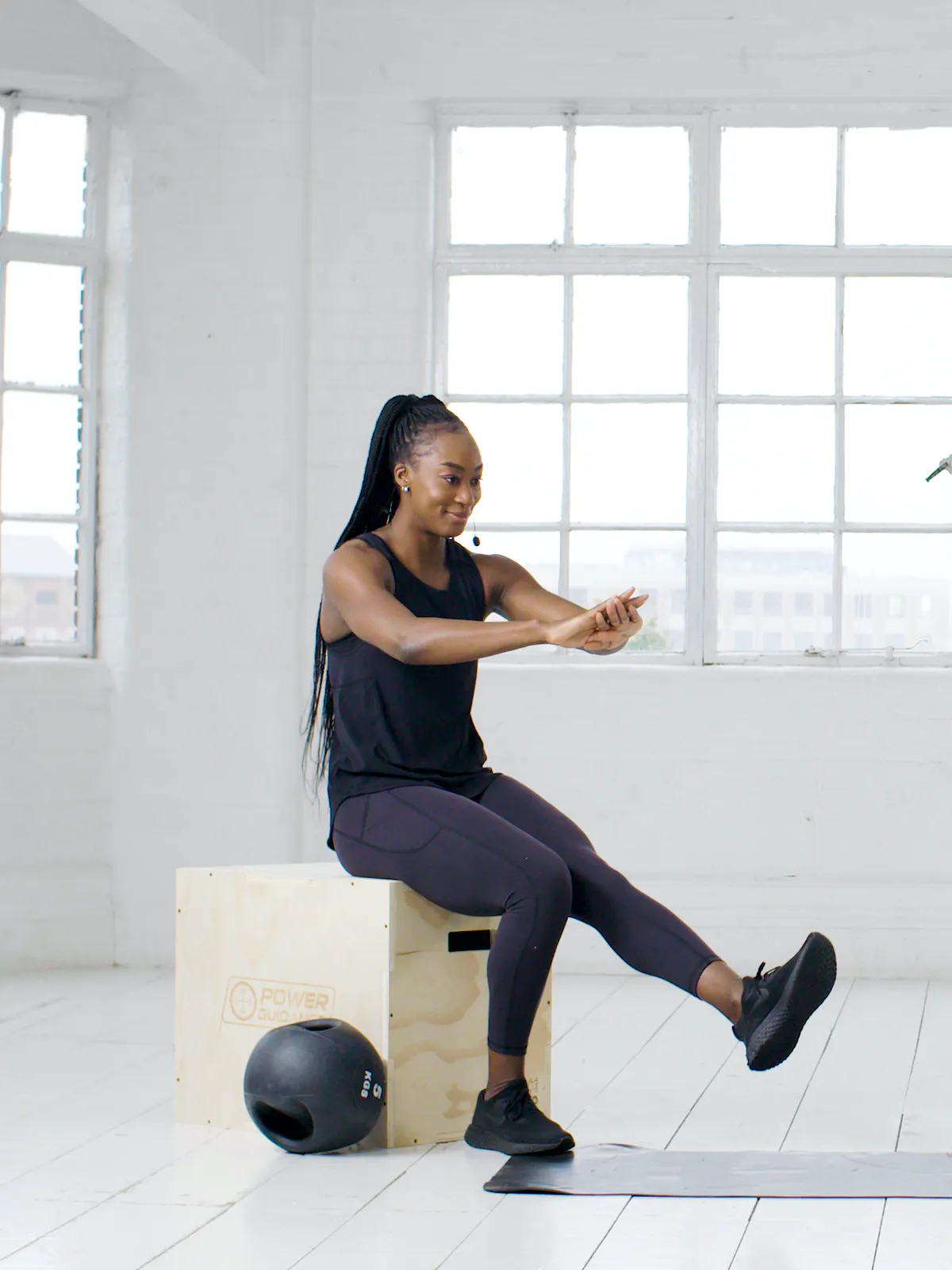4 steps to nailing a full pistol squat
A pistol squat is an advanced single leg move. Try these progressions to help you nail a full rep.
The pistol squat is the lesser-known but killer variation of the regular squat. Not only does it looks impressive to pull this move out in the middle of the gym, but it builds strong quads while challenging your balance.
“Pistol squats are a great way to work really hard without lifting weight,” says strength and mobility coach Pennie Varvarides. “Pistol squats are very hard, so they might not be appropriate for everyone, but working towards them will help you build single length strength. That’s important for pretty much everyone.”
You may also like
Split squat to feel strong and stable
A pistol squat is essentially a single leg squat, but with one leg balancing out in front of you. From impressive ankle flexion to strong hips and a rock-solid core, there’s a lot of ingredients that go into perfecting the pistol squat.
“Technically, it’s twice as hard as just squatting,” says Varvarides. “You’re moving your same body weight with just one leg, instead of two. You need to spend time strengthening the joints and the muscles that support the move, as well as practice the shapes of the pistol squats itself.”
Pistol squat variations
“When people try to learn how to do a pistol squat, they tend to just perform the move holding on to a TRX or a wall,” says Varvarides. “The problem with this is that it doesn’t teach you when to hold, contract or balance. Instead, I like to get people to work on all of the components of the move.”
That means first getting comfortable moving on one leg. Then, building strength and co-ordination until you can complete the move. To do that, work your way through these three moves until you progress to the full pistol squat.
Split squat
These are a great place to get to grips with the single leg stance while keeping both feet on the floor.
- Stand with your feet hip-width apart, holding dumbbells in your hands if using them.
- Step forward with your right foot.
- Slowly bend both knees so that your back knee is an inch off the floor and your front leg is now at a 90° angle.
- Slowly straighten the legs to come to the top of the move.
- Repeat on one leg before switching to the other.

Box pistol squats
These will start improving your balance and ankle mobility. Start on a low box and increase the height of it until you’re doing full-range step ups.
- Stand on a box or chair with your right foot and allow your left foot to hang off the side of the box.
- Bend your right knee to lower your right glute to your heel. Your left heel should come downwards the floor.
- Make sure your abs are engaged, ribs are down and pelvis is tucked.
- Push through your right foot to come back to standing.
Seated pistol squat
This is when you start to pull it all together using your strength and balance. Using a chair or box means you can adjust your depth to a height you feel comfortable with, and slowly opt for a lower support.
- Stand in front of a box, chair, sofa or equivalent, with your feet shoulder-width apart.
- Place your weight onto your right foot and lift your left foot off of the floor.
- Begin to bend your right knee to lower yourself down to sit on the chair or box. Go slow to control the movement.
- Push through your right heel to lift yourself back to standing.
You may also like
Squats: try this 10-minute leg day workout with 3 squat variations for stronger thighs
Full pistol squat
Now you’re ready to try the full thing. Remember – these are an advanced exercise, so you probably won’t be working in a hypertrophy or endurance rep range. Instead, keep your reps low and work on your strength.
- Stand with your feet hip-width apart.
- Lift your leg leg out straight in front of you, so it’s parallel (or as close to parallel) to the floor.
- Push your hips back and bend your right knee to lower your bum to your heel, ensuring you don’t tip to your right hand side.
- Press through your right foot to stand back up.
For more technique tips, sign up to the Strong Women Training Club.
Source: Read Full Article


